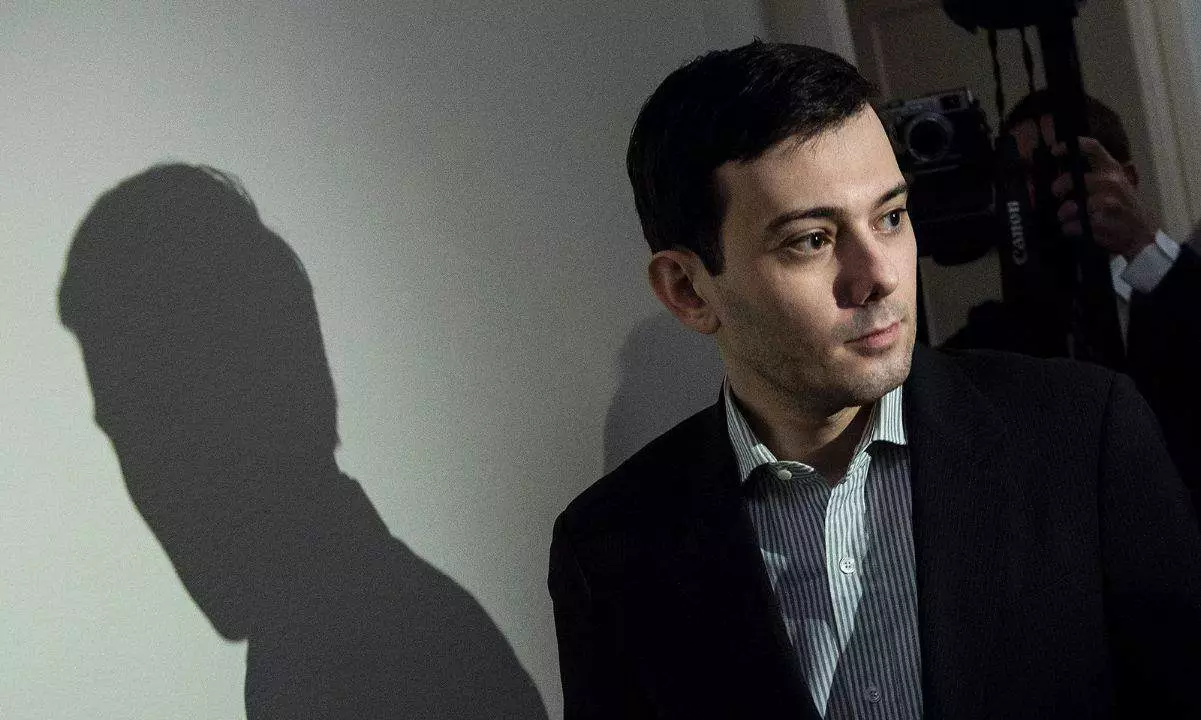The intersection of music, law, and digital assets is a contentious ground, exemplified by the ongoing legal battle involving Martin Shkreli, a controversial figure in the pharmaceutical industry. Shkreli’s recent motions to dismiss claims filed against him by PleasrDAO—a decentralized autonomous organization dedicated to digital collectibles—shed light on the complex and often murky world of intellectual property and ownership rights in relation to unique music recordings. The case, which centers around the sole copy of Wu-Tang Clan’s Once Upon a Time in Shaolin, illustrates the challenges presented at the crossroads of art and law, complicating the narratives of ownership, rights, and accountability in the digital age.
The saga traces back to June 2024, when PleasrDAO sued Shkreli, alleging that he illegally retained copies of a one-off Wu-Tang album. The NFT collective’s legal action raises pertinent questions about copyright in the realm of exclusive goods, particularly how ownership is determined in secondary market transactions. Initially, Shkreli acquired the album in 2015 at a staggering $2 million, reportedly under a contract that prevented public release until 2103. This unique framework creates a polarizing environment where collectors are enticed by exclusivity while simultaneously facing tight restrictions imposed by the creators.
Following Shkreli’s arrest in 2018 for financial misconduct related to his pharmaceutical company, Retrophin Inc., the album was seized by authorities. This act set into motion allegiances and antagonisms surrounding the album’s ownership, particularly after PleasrDAO purchased the album in 2021 for $4.75 million, intending to mint it as an NFT. This purchase and corresponding plan to digitize the unique work into an NFT symbolized not only a significant financial investment but also a gamble on the future viability of NFTs as a legitimate form of art preservation.
At the heart of Shkreli’s motion to dismiss lies his assertion that PleasrDAO’s claims are preempted by the Copyright Act. This legal reliance on copyright status underscores the complexities of intellectual property law in the new digital landscape. Should the court proceed with PleasrDAO’s claims, Shkreli aims to involve the Wu-Tang members who co-own the album, thus asserting that he is not the sole entity responsible for the alleged copyright violations.
The nuances of these claims reflect broader concerns surrounding how ownership rights are managed amidst changing technological landscapes. With PleasrDAO contending that their purchase nullified Shkreli’s rights to the music, the case raises critical questions about transparency and clarity in negotiation and contractual agreements. Both parties seem equally convinced of their rightful claims, creating an impasse that will require grappling with foundational principles of copyright in any potential verdict.
Further complicating the case is Shkreli’s well-documented propensity for provocative conduct, particularly his public taunting of PleasrDAO. His claims of having made multiple copies of the album and continued play on his platforms signal not just a defiance against legal constraints but also a bewildering mix of arrogance and bravado. This behavior might serve as a double-edged sword; while it could alienate potential sympathy from the court, it also brings attention to the highly sensational nature of the dispute, captivating public interest.
Moreover, Shkreli’s involvement in the digital currency space, evidenced by claims related to a Donald Trump-themed meme coin, exemplifies his ongoing engagement with speculative assets. This potent mix of financial acumen and confrontational engagement shapes an unpredictable narrative, positioning Shkreli as both a legal adversary and a commercially savvy figure, for better or worse.
The Wider Implications for Music and Digital Ownership
The ongoing litigation surrounding Shkreli and PleasrDAO transcends mere personal grievances; it reflects larger implications for the music industry, digital assets, and collectors. As the boundaries of ownership and rights become increasingly blurred in the digital realm, outcomes from this case may well establish precedents applicable to future transactions involving NFTs and unique music releases.
As traditional concepts of ownership are challenged by the possibilities offered through blockchain technology and NFTs, artists, collectors, and investors alike must navigate an evolving landscape. This case highlights the need for clearer frameworks that guide unique asset ownership in light of rapid technological change. Ultimately, the resolution could serve as a significant bellwether for future disputes, highlighting the ongoing necessity for vigilance and clarity in the burgeoning world of digital collectibles.














